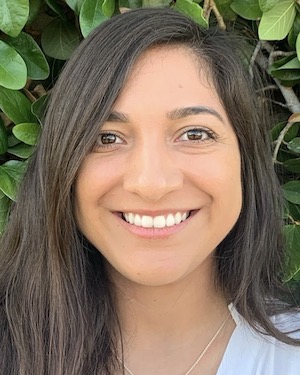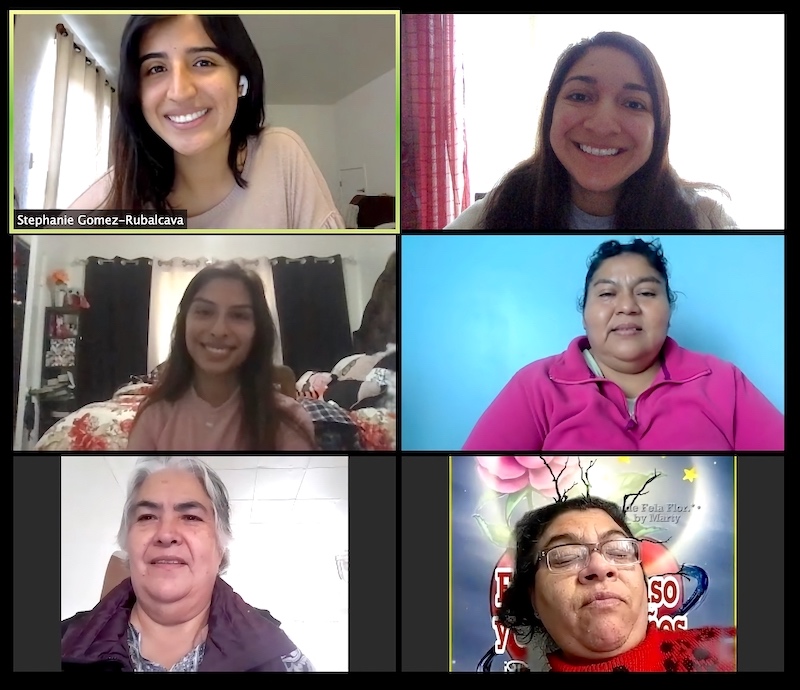Working with the Community

December 21, 2020
by Liz
In one of my previous blog posts I shared a little bit about the community program that my colleague, and one of my dearest friends, Stephanie and I are leading together. The program is called Vivir Con Diabetes, and was initially developed by another occupational therapy student, David, as a part of the Albert Schweitzer Fellowship. In efforts of continuing the program, he mentored our very own Daniel Padilla, who then continued running the sessions the following year in collaboration with his colleague, Ceci. As you may all know, Daniel is now an OTD student and taking on other things as he works towards becoming Dr. Padilla. His colleague Ceci is also working on obtaining her OTD and is busy as she completes her residency at CHLA’s UCEDD. So now this year, Stephanie and I are running the program’s sessions.
To give you all more background, Vivir Con Diabetes is a program designed to support the Spanish-speaking community of Boyle Heights as they strive to make lifestyle changes in order to improve their diabetes management. Our goal is to implement culturally sensitive interventions as we support them in achieving their goal of better managing their diabetes. Our program site is the LAC+USC Wellness Center, which our participants are very familiar with because they utilize some of their other resources. I get a lot of questions from prospective students like “What kind of work do you get to do directly with the community?” “What are other ways to stay involved besides student organizations on campus?” “What kind of work do you directly get to do with the Latinx community?” Well, this is one of those ways in which I stay connected with my community all while using an OT lens.
Normally these sessions are held in person, but given the current situation we have been hosting them online. There are three sessions that take place Saturday mornings and are each 45 minutes long. It sounds like a long morning, but they really fly by! As we were discussing what we would be covering during the sessions and how they would be structured we had a few things to think about: would everyone that was interested in joining our classes have access to the internet? A computer? A cell phone? We really got to think about how much of an impact COVID-19 has had on our community, especially those who would come in-person to the Wellness Center with the goal of learning more about how to be more directly involved in their own health and care. Most of our participants tune in using their cell phones. Because Stephanie and I log in using our laptops, we had to learn a little more about how to instruct and guide our participants to unmute/turn their cameras on/off on their phones.
Stephanie and I touch on different topics every week and make sure that we relate them back to our participants’ diabetes management. We talk about things like:
- Sleep hygiene
- Chronic pain
- Stress management
- Physical activity — two weeks ago we did Zumba for 20 minutes, which was a hit!
- Communicating with one’s provider
- Mental health
These are just a few of the topics we cover, and as I mentioned before we always tie the topic back to diabetes management. For example, how does the stress created by family members and your provider affect your ability to manage your diabetes? How does the pressure of keeping your A1c levels low affect how you feel about yourself? How does it affect your relationships? Because our participants are Spanish-speaking and there’s already a low number of Latinx providers that they can relate to, our participants really love to share and talk to a group of people that understands — people that they can relate to.
I should mention that Stephanie and I aren’t just creating these lessons off the top of our heads! We get feedback from Dr. Diaz on our session outlines every week before introducing any content to our participants. Which brings me to my next point — mentorship. Aside from being able to work with the community, participating in this program has provided me with some great mentorship from Dr. Diaz. He continuously supports Stephanie and I by meeting with us on a weekly basis to go over our session outlines, any challenges we faced at our sessions, and also shares a ton of resources with us!
All in all it’s been such a great experience to be a part of this program. It’s something that I wish would have been available to help my grandmother with her diabetes management, and something that I think really makes a huge difference for our community in general. Speaking from my grandmother’s experience, she didn’t quite understand what it meant to have diabetes, didn’t know that there were so many lifestyle changes that could have helped her manage it, and also didn’t really feel comfortable asking her provider questions because she didn’t speak English. So, I am really passionate about supporting my community in any way possible.

This past week was our last week of sessions for the semester. Here we are with some of our lovely participants from the 9 AM session! This photo was shared with participants’ permission.
I hope this was helpful for learning more about other ways in which you can stay involved and make a difference in the community. Please feel free to reach out to me if you have any questions about the program or about the Albert Schweitzer Fellowship! I would be happy to walk you through that application if you’re interested in applying for the following year. Fight on and happy holidays!
⋯
Next by tag Diversity ⟩ Getting Involved ⟩
⋯





